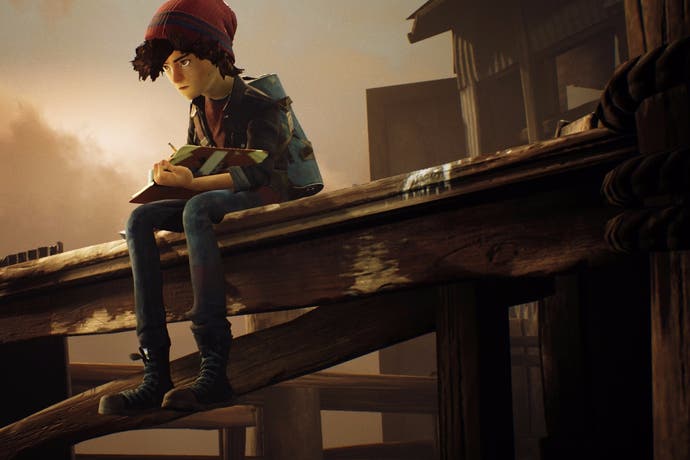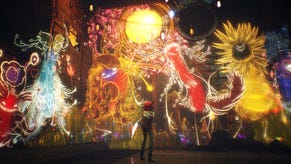The story behind Concrete Genie, PlayStation's next wistful wonder
Take that to the Banksy.
One of the more pleasant surprises during an occasionally bleak Sony conference at last month's Paris Games Week was the reveal of Concrete Genie - a wistful third person adventure game gently exploring themes of bullying and childhood through luscious hand drawn art that stands out in contrast to its moody urban environment.
Concrete Genie is the work of PixelOpus, a Sony-owned studio that works out of San Mateo, California, with the express purpose of giving young developers a start in the business. "Connie [Booth, VP of product development at Sony Interactive Entertainment] was trying to find ways for new people to have a good experience coming into the industry," explains Dominic Robilliard, Concrete Genie's director.
That search brought up the group behind Entwined, a sweet if slight game that similarly served as a palate cleanser during Sony's E3 back in 2014 before it was quickly ushered up onto the PlayStation store. "We found a group that was really talented, bought them onto the Sony campus and realised there was something special there," says Robilliard. "We felt, when we were doing Entwined, we could offer so much - I think it's made a profound difference for this game, especially when we're doing something that's much more ambitious."
PixelOpus' workforce is a curious blend - there are students fresh from courses at the likes of Carnegie Mellon, as well as veterans of the industry who provide a guiding hand. Robillard himself worked at Sony London on the likes of The Getaway before a spell at LucasArts saw him on XBLA side-scroller Lucidity and the ill-fated but incredibly ambitious Star Wars 1313, and he's joined by art director Jeff Sangalli, another alumni of LucasArts.
"It's a very different energy - when we left Lucas and came to do this, there was a sense of it sounding like hard work, and it's completely the opposite," says Robilliard. "The first thing that blew me away was the level of training these graduates had - it was far in excess of what I had as a designer. When I was a kid at Sony, making games wasn't an academic path you could follow. It's a two way street - they're teaching us stuff too in contemporary thinking and how to organise the creative process. Getting to see the world through their eyes - the raw enthusiasm they have is healthy for us, it reminds us how lucky we are to make games. They're like that every day, it's amazing."
The idea for Concrete Genie came from within that group - more specifically from VFX artist Ashwin Kumar, from who the game's lead character takes his name. Kumar built a pitch around the idea of bullying, creating a piece of concept art that was slowly unpacked by the rest of the team in terms of how it could translate to gameplay.
And so you play young Ash, exploring a series of locations that can be freely explored and returned to as your access to the city builds up over time. There, using the motion control in the DualShock 4, you can sketch out art on the drab urban landscape as you create your own colourful fantasy.
"We could only be inspired by this if we incorporated the bullying theme into the game itself," says Robilliard. "This is our third iteration of those mechanics - as the story progresses, and you become invested in the landscapes and the creatures that you've built, it's the bullies in the game that start ruining your artwork, and you get to experience what that feels like. It's not just Ash's artwork - it's your artwork.
"It's unusually difficult to have that - when you go back and expect to see your creature there and something terrible's happened. But it's also, as a gameplay mechanic, very good at incentivising you to fix that situation, it's very compelling to return it to how you originally made it. It's worked out from a design perspective too."
It looks like a thoughtful implementation of a powerful theme, a compelling mix of Okami and Papa and Yo and the kind of artful game that Sony has encouraged so well in the past. "All those games with an authentic emotional connection," says Robilliard as our brief time together comes to an end. "That's definitely something we aspire to."





